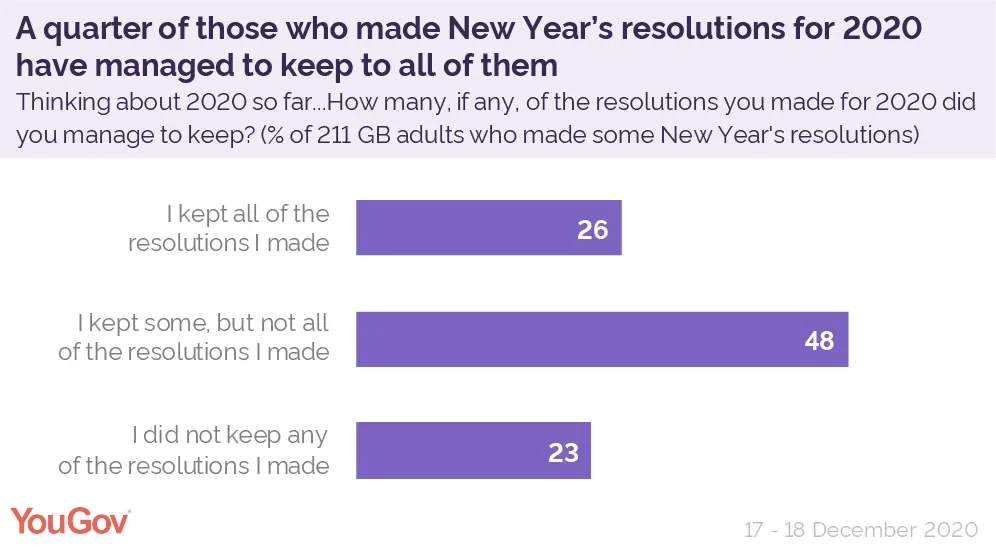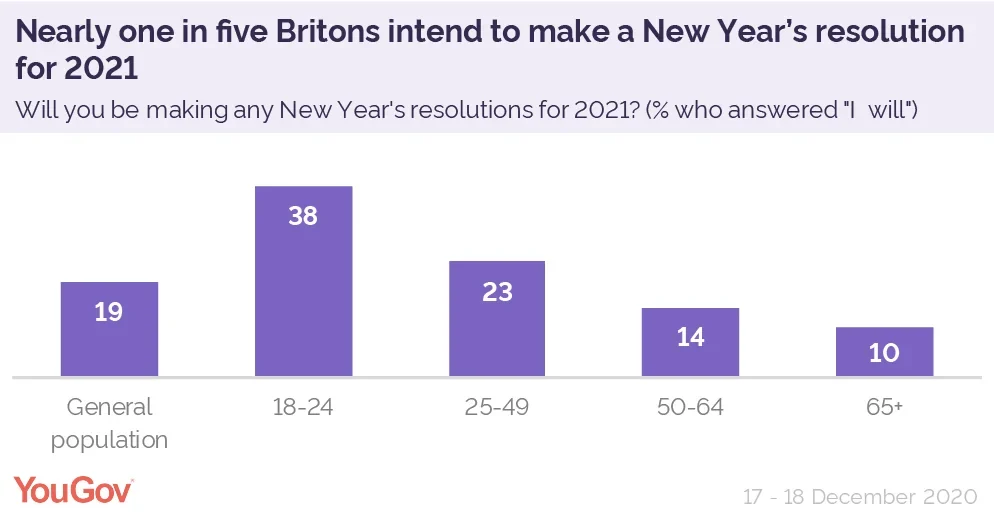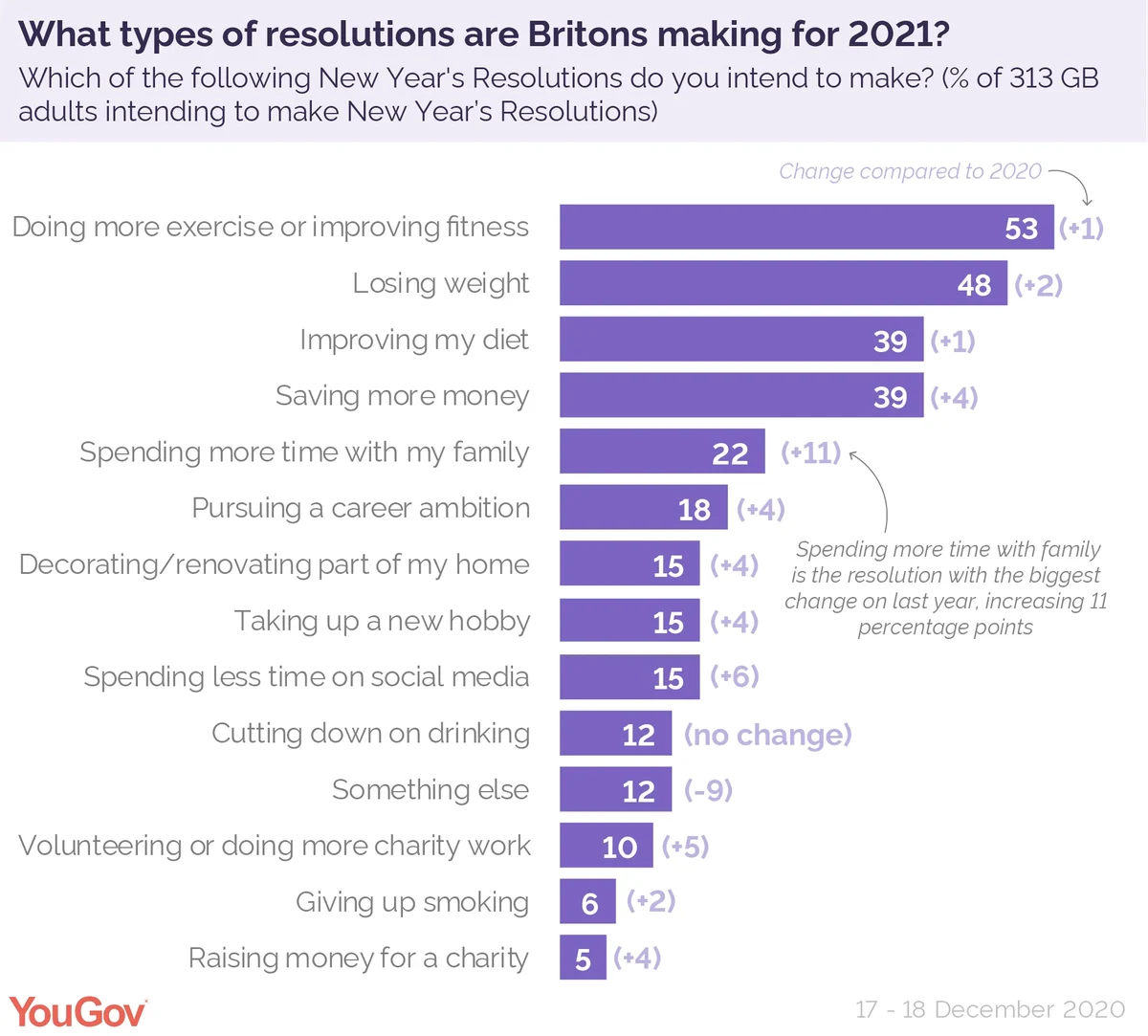Upping their exercise is top among Britons making a resolution for 2021
With the New Year on the horizon, YouGov explores how Britons got on with their resolutions they made for 2020, and how many plan on making new ones for the coming year.
Nearly a quarter of Britons who made a resolution for 2020 failed to keep any of their promises
Overall, 12% of Britons made New Year’s resolutions for 2020, although this is fewer than half of the 27% who said they were planning on doing so when we asked in December 2019. Resolutions proved most popular among the young; nearly a quarter (24%) of those aged 18-24 made a resolution compared to just 6% of the 65+ age group.
However, with 2020 being the way it was, how many made good on their promises to themselves? Of those who made resolutions, only a quarter kept all of them (26%), although half managed to keep some of them (48%). Around a quarter failed entirely (23%).
Despite coronavirus, the proportion of resolution-makers saying they have kept all their resolutions is around the same as it was in 2019 (25%).

While a similar proportion of men (10%) and women (15%) made resolutions for the year, men are more likely to claim they achieved all their aims (36% vs 20%).
Around a fifth of Britons plan on making New Year’s Resolutions for 2021
Approaching one in five (19%) of Britons say that they will be making a resolution for 2021, with resolutions again proving most popular among those aged 18-24, of whom 38% plan on doing so. Of the 65+ age group, only one in ten (10%) plan on making a resolution.

Women (23%) are more likely than men (15%) to plan on making resolutions for the New Year. Resolutions are also more popular among those from an ABC1 background (24%) than those from C2DE backgrounds (13%).
Health dominates New Year’s resolutions
What resolutions are Britons making? For the second year in a row health dominates the top three resolutions.

Doing more exercise and improving fitness top the list of resolutions (53%), with losing weight (48%) the second most popular resolution, and 39% resolving to improve their diet in 2021. Resolutions around improving heath are universally more popular with women, with the biggest difference being changing diet; a resolution for 47% of women making resolutions compared to 26% of their male counterparts.
The biggest non-health resolution is saving money, with approaching two in five (39%) resolution-makers aiming to put more money away this year.
The biggest change year-on-year is with resolution-makers and their loved ones: 22% of resolutions for 2021 include spending more time with family members, an increase of eleven percentage points on 2020. Men are more likely to want to see more of their family than women (27% v 19%).
In another increase from last year 15% of resolution-makers aim to spend less time on social media, up six percentage points from last year.
Some of the resolutions Britons listed in our ‘something else’ category include moving house, passing their driving tests and “listening to one David Bowie track every day”.








